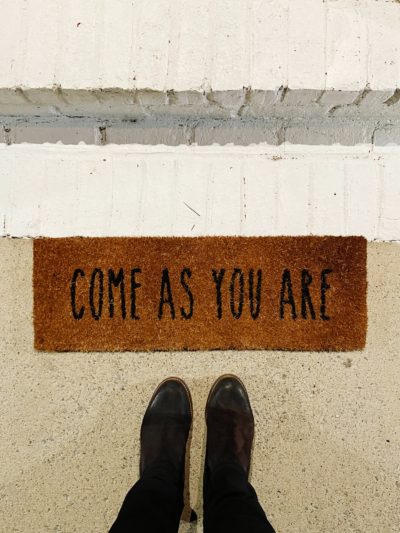“A. A. is not for everybody” “A. A. doesn’t work for me.”
When we hear these from someone, how do we react?
By Jamie M.

Once at a meeting I heard a young man talk about having been sent to rehab and returning home to live with his parents. He had been told that the price of free rent—no small thing in the Bay Area—was that he had to attend A.A. meetings. He told his mom, “I can’t be a member of A. A. because the requirement for membership is a desire to stop drinking.” The mom, who I suspect had some Al-anon under her belt, replied, “Then go as a guest!” That got a laugh, of course, because we all knew by the way he told the story he had decided he was a member after all.
How often have we heard people say that “A.A. is not for everybody?” We have encountered folks in meetings, perhaps coming back from a slip, who may have said “A.A. doesn’t work for me.”Well, if you’re reading this it’s pretty likely that you think A.A. is for you and that it works for you. So if you’re like me, you may think “I don’t care if people think A.A. is not for them, because I know it is for me and I also know that it works for me, so what do I care about what those people say?” After all, our Tenth Tradition states that we have no opinion on outside issues, right? And we all know the old saying that the Program isn’t for people who need it, the Program is for those who want it. But if you’re like me, you recognize that you needed the Program long before you decided to want it.
Here’s the wrinkle, though: if I am an active member of Alcoholics Anonymous, then a key part of my own sobriety is working with newcomers—the alcoholic who still suffers. So that means I may meet these statements again and again working with newcomers—or just talking to a stranger at a meeting. When I greet someone at a meeting, they might be a member, a new member or a guest.
Of course, many of us will have our own personal stories about how we dealt with the questions, “Is A.A. for me?” and “Will A.A. work for me?” When we share our personal experience of how we dealt with these issues, we’re generally on solid ground. But how we share can be just as important as what we share. I was captured by Big Book thumpers on first coming to the Program and didn’t know it, of course, until weeks later. I was willing, I was open-minded about whether or not the Program could work for me. Honesty, I’ll admit, came a bit later. So when someone says A.A. is not for them or not for everybody, I mostly just nod and agree. But I also remember that when I first went to those first few meetings, the absence of sales pressure was intriguing to me. In a world where we are under relentless, ubiquitous pressure to take sides, to join, to buy, to advocate for or against causes, the absence of that was a mystery and it felt sort of like when you go to push open a heavy door and it turns to have no weight—I sort of fell in to the Program. Partly because of this, it worked quickly and well for me.
Because I was a bona fide “pink cloud” member, there was a time when I was insufferable and might have sharply asked, “Then why are you here?” if someone expressed doubt about the Program—and perhaps condemned some court-ordered alcoholic to years more of suffering just to avoid self-righteous jerks like me. In some ways, my lack of doubt about whether or not A.A. was for me, or whether or not it would work for me were potential handicaps in working with newcomers—or talking to guests.
With someone who is at a meeting or someone I’ve met socially says, “A.A. doesn’t work for me,” I can take a relaxed approach of asking in all sincerity what the person has done and not done to get and stay sober. I can hope to add helpful suggestions, as well as sharing that I’ve known people to simply go to a lot of meetings and hang out a lot with sober people without getting a sponsor or working Steps. I may not tell them (yet) that people typically end up getting a sponsor and working Steps. If they come around enough, they’ll find out for themselves. If someone is court ordered I’ve told them to get legal counsel and fight the case instead of coming to A.A. When they say they don’t have the money, I agree that going to meetings is definitely cheaper than fighting a court case and sympathize with their plight. Like those who 12th-Stepped me, I can thank the person for allowing me to talk to them and honestly say that it helps me stay sober. When I’m polite and welcoming to our guests they may be intrigued as I was and they may decide they want to be members.


